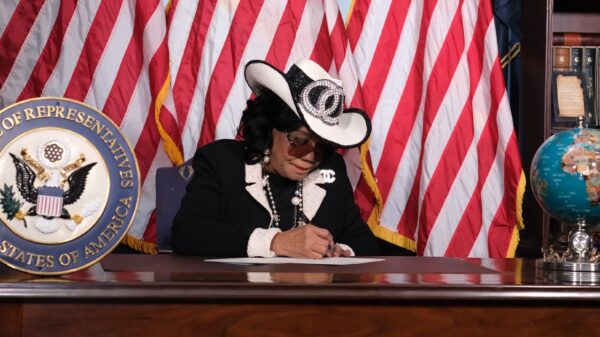At the end of last week, U.S. Reps. Charlie Crist, D-Fla., Mario Diaz-Balart R-Fla., and Debbie Wasserman Schultz, D-Fla., led nine other members of the Florida congressional delegation in sending a letter calling for the inclusion of Everglades restoration in an infrastructure package.
In the letter to the leaders of the U.S. Transportation and Infrastructure Committee, the members urged the committee to provide robust funding for key restoration projects, citing the importance of the Everglades ecosystem for providing clean drinking water to 8 million Floridians, creating jobs, and supporting the regional economy. The members also highlighted the Everglades’ role in climate resiliency; including mitigating sea level rise, erosion, and saltwater intrusion; and providing habitat for up to 200 threatened or endangered species, such as the Florida manatee.
Other signers included U.S. Reps. Gus Bilirakis, R-Fla., Val Demings, D-Fla., Ted Deutch, D-Fla., Byron Donalds, R-Fla., Lois Frankel, D-Fla., Carlos Gimenez, R-Fla., Stephanie Murphy, D-Fla., Maria Elvira Salazar, R-Fla., and Frederica Wilson, D-Fla.
The letter is below.
Dear Chair DeFazio and Ranking Member Graves:
As you begin the work of addressing our nation’s crumbling infrastructure, we respectfully urge you to include robust funding for Everglades restoration. This funding will support the expeditious completion of numerous projects that are integral to the success of a restored and healthy Everglades. Through its Integrated Delivery Schedule (IDS), the U.S. Army Corps of Engineers (USACE) has identified key project funding opportunities through Fiscal Year (FY) 2025, that total $2.9 billion in federal cost-share funds- a transformative funding amount for the communities we represent. We understand the priorities of this Committee to be sustainable, climate-resilient infrastructure and we firmly believe that the South Florida Everglades Restoration (SFER) program models such a priority.
The Everglades is central to Florida’s health and economy. It is the source of drinking water for 8 million Floridians, and restoration ensures a reliable and clean flow throughout South Florida’s communities for generations to come. The Everglades is also a short- and long-term job creator, boosting the surrounding economies. Based on a standard calculation utilized by the USACE, between 65,000-70,000 jobs will be created over four years should SFER receive full funding to fulfill authorized construction projects on the integrated delivery schedule. As a World Heritage Site, International Biosphere Reserve, a Wetland of International Importance, and a specially protected area under the Cartagena Treaty, this unique ecosystem is a National Treasure that attracts hundreds of thousands of recorded visitors every year from around the world. In 2019, Everglades National Park, Biscayne National Park, and Big Cypress National Preserve, collectively known as the Greater Everglades National Parks, attracted almost 3 million visitors and contributed $238 million to the local economy. Additionally, once its natural systems are restored, over 440,000 jobs will be created across commercial and recreational sectors surrounding the ecosystem such as fishing, lodging, retail, entertainment, transportation, dining, and real estate. Public health and an economy ravaged by pandemic and economic downturn would greatly benefit from this infusion of funding to recover and become more resilient in the face of future crises. Everglades restoration provides the ideal model for the benefits of investing in these conservation and infrastructure projects as laid out in the Biden- Harris Administration’s plan to revitalize and maintain a more reliable American labor economy through long-term and comprehensive land restoration endeavors.
In addition to the direct benefits to Florida’s communities and economy, restoration and preservation of America’s largest sub-tropical wilderness is vital to the health of the ecosystem, biodiversity, and climate resiliency. The Everglades serves as an important barrier to sea level rise and erosion, sequesters carbon, contributes to ocean and sea life health, and is a home for wildlife, including an estimated 180 species that are declared threatened, endangered, of special concern, or commercially exploited, such as the iconic West Indian manatee and Florida panther. In fact, the entire State of Florida has been identified by the Critical Ecosystem Partnership Fund as part of a biodiversity hotspot. Our drinking water, residential and wildlife areas, and land-based industries are protected by the Everglades’ natural barriers from salt water intrusion into natural aquifers and sea surge, supporting broader climate resiliency plans while delivering fresh clean water to homes, farms, businesses, parks, and other essential infrastructure. Further, Florida International University estimates the Everglades’ mangrove forests can store up to $3.4 billion worth of carbon, removing greenhouse gases from the atmosphere.
Florida has successfully executed robust public lands and waters programs with bipartisan support. In fact, Florida is leading in preservation efforts. Over 12 million acres of land in Florida, or 34.4 percent, and 35 percent of state waters are currently included under conservation programs coordinated across national, State, local, or private conservation efforts. As of FY2020, the state has invested $4.5 billion upfront to build momentum for SFER projects like the Comprehensive Everglades Restoration Plan (CERP), which is mandated to be a 50/50 cost share between the federal government and the State by the Water Resources Development Act of 2000. The federal government currently has invested $1.7 billion into CERP, leaving ample room for the Committee to deliver robust funds for Floridians as part of a rigorous job and conservation agenda. The need to invest aggressively now is amplified by the millions we can save by ensuring USACE can move forward with the resources accounted for upfront, preventing costly delays that have contributed to growing expenses. A commitment from this Committee will solidify and build upon past environmental infrastructure successes in Florida, and indicates to the State of Florida that the Committee fully stands behind the restoration project that is of central importance to scores of Floridians.
Thank you for your consideration of our request, Florida is ready to continue to partner with your Committee to work on these shared goals and deliver for our nation.




















